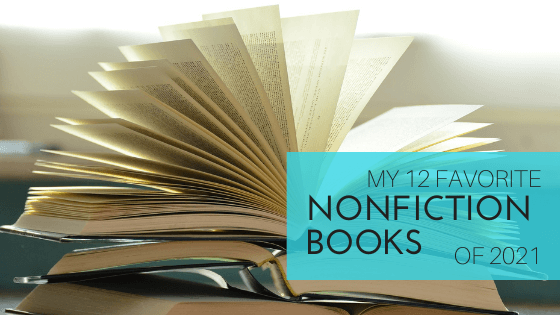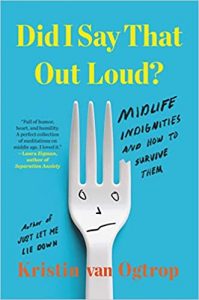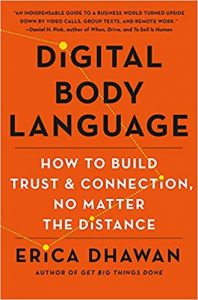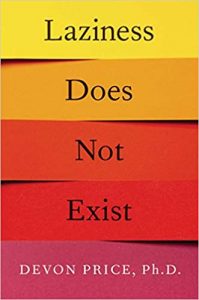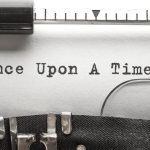I read nonfiction books differently. I tend to read them in hardcover and highlight them, making notes in the margins. I take this approach when I want to actively learn from them. Or I listen to them as audiobooks, especially if they’re memoirs. I love listening to memoirs and self-help books.
Regardless of how I read it, I have a nonfiction book going all the time.
I read 125 books in 2021. Of those, I gave 41 books perfect grades. Below are reviews of my 12 favorite nonfiction books.
1. Broken (In the Best Possible Way)
Jenny Lawson cracks me up. Don’t get me wrong, I know mental health issues are nothing to laugh about. Lawson knows it too because she has multiple psychological and physical health issues. But Lawson chooses to share humor with her readers as a form of coping and informing people to help them better understand others’ struggles.
I laugh out loud when I listen to Lawson’s books. And listening is the way to go. You need to hear her stories in her voice. There is nothing quite as funny as listening to her talk about how she always loses one shoe in public places or the business ideas she wants to pitch on Shark Tank.
I loved Lawson’s book Furiously Happy. It made me laugh and cry. It showed the humanity behind Lawson’s mental health issues. This latest book just made me laugh. Don’t listen to Lawson if you’re easily offended. Otherwise, get ready to chuckle then think, “That’s not funny!”
2. Content Rules
Content Rules by Ann Handley and C.C. Chapman is the book on content. I shouldn’t have waited so long to read it.
While some of the platforms mentioned in the text have changed, the fundamentals for content development and execution — from identifying strategy to finding your unique voice — are still relevant and worthwhile to read.
Anyone who writes content, for a living or for your personal brand, would benefit from reading this book and keeping it on hand to reference.
3. Did I Say That Out Loud? Midlife Indignities and How to Survive Them
I don’t know if I’m in midlife or not. But I suspect you are if you have to question it. Maybe that’s why I enjoyed Kristin van Ogtrop’s book so much.
Did I Say That Out Loud? Midlife Indignities and How to Survive Them seemed to take the approach of needing to laugh about the stuff that happens to us as we age so we won’t cry. I found myself thankful that it wasn’t just me who couldn’t work the TV remote anymore (or even see the guide from across the room for that matter). And don’t even get me started on the part where you just stop sleeping. I’ve always been a sleeper! I need my sleep!
But I love that this book also talks about all of the things you don’t miss once you reach a certain age. Isn’t it lovely to be comfortable enough with yourself to not give a rats about what others think?
4. Digital Body Language: How to Build Trust and Connection, No Matter the Distance
We communicate differently today than we did just a decade ago. And younger people do and think about digital communication differently.
Digital Body Language by Erica Dhawan, an expert in digital teamwork, is an essential read for today’s professionals.
The gist of the book is that we rely on body language when we communicate in person. Body language, including facial expressions, helps us better understand the intent of messages. But we don’t have those luxuries with digital communication, even Zoom. So we’ve created a kind of shorthand for digital body language. They’re new signals and cues that replace body language across genders, generations, and cultures. And, if you want to be effective communicators today, you need to understand them.
5. Laziness Does Not Exist
How could you not read this book after seeing the title?
But laziness actually does exist. It just isn’t real for most of the overachievers who think they’re lazy. In short, people who actually are lazy, probably don’t realize it or care.
For those of us who feel bad giving ourselves a break. Dr. Devon Price says STOP IT!
People today do more than any others in history, but we still feel like it’s never enough. Dr. Price wants readers to understand that your productivity does not define your worth and it’s time for you to embrace doing enough before you make yourself physically ill, as she once did.
6. My Time Will Come: A Memoir of Crime, Punishment, Hope and Redemption
If you think our justice system works, you need to read this book.
No, Ian Manuel isn’t another person who claims he’s wrongly incarcerated. He did what he was punished for. He shot a woman during a robbery in 1991. She did not die, but she was severely wounded, as you can imagine. He was 14 years old. He was abused and already traumatized when it happened. Then he was sentenced to life in prison.
Because Manuel was a minor, he couldn’t be put in the general prison population. That meant he spent 18 years in solitary confinement. Most of us can only imagine what that does to a person’s mental health.
Manuel deserved punishment for what he did. But our system doesn’t handle regular offenders well, let alone those who are minors and convicted of serious crimes. This book uncovers some of these issues.
7. The Five Dysfunctions of a Team
I know it’s strange that I’d never read Patrick Lencioni’s classic leadership book, The Five Dysfunctions of a Team: A Leadership Fable. But I decided now was the time to give it a listen.
The book tells a story of a CEO hired to unite a dysfunctional team and get the company back on course. During her training with the team, she introduces them to the five most common dysfunctions in a team.
The Five Dysfunctions Are:
- Lack of Trust
- Fear of Conflict
- Lack of Commitment
- Avoidance of Accountability
- Inattention to Results
The interesting thing is that, as I was listening, I could relate to these dysfunctions. I’ve either had them myself or experienced them on teams. Of course, the book also gives advice for overcoming these issues. And, let’s be honest, if they’re so common, most teams probably need help with at least one of them.
8. The High 5 Habit
I don’t often say this about books, but The High 5 Habit: Take Control of Your Life with One Simple Habit by Mel Robbins is a game-changer.
The book’s premise is that you celebrate so many things you love in the world — from your favorite sports team to your coworkers — but you don’t cheer for yourself. Instead, you spend time being self-critical and thinking about all the things you aren’t. How will you ever live up to your full potential when the person closest to you… the person who drives all of your daily thoughts and actions… is your worst critic?
Mel says it’s time we start cheering ourselves on. So, instead of looking in the mirror each morning and thinking about all we’re not or everything we’re stressed about, we’re supposed to repeat a daily mantra and high-five ourselves in the mirror.
I’m not gonna lie. I thought it sounded kind of stupid too. But Mel really backs this idea with science, and it makes sense. So, I decided to give it a try.
The High 5 Habit got me through a big professional deadline. It stopped the negative cycle in my head. And it made me smile every day. You literally can’t high-five yourself in the mirror and not smile.
What mantra should you use? It’s totally up to you. I started with a little song from one of my favorite Tik Toks that goes, “Bitch, you’re doing a good job.” I moved to, “You’ve got this!” I followed that with, “I can do this!” The mantra doesn’t really matter, as long as it empowers you and you send a positive message to yourself.
If you know me, you also know that I love my dogs. Like stupid love my dogs. Love my dogs more than my kids love for my dogs. So, every morning after I high-five myself, I get a high five from Cash. He loves it! It makes him feel like an involved, good boy. He knows it’s coming each day. And I really smile (and usually laugh) getting a morning high five from my dog.
9. The New Corner Office: How the Most Successful People Work from Home
I get what Laura Vanderkam was trying to do by making her most recent book digital-only, but I’m bummed about it. I need to be able to touch and highlight this book.
Vanderkam is my favorite productivity author. Her book 168 Hours: You Have More Time Than You Think changed my life. It’s one of my favorite productivity books.
Vanderkam has worked from home for a while. In her book, she draws on her experience as a productivity researcher, work-from-home speaker/author, and parent to help guide the rest of us.
Vanderkam encourages the following as we embrace the new way of work:
- Manage Tasks, Not Time. Gone are the days when we worked 8 a.m. to 5 p.m. or punched a clock. Today’s managers and workers focus on getting necessary tasks done and moving on with their lives.
- Embrace a Rhythm. Routine is important when you work from home. Each person has to determine a morning, work, and shutdown routine that works for them. Otherwise, you’ll feel constantly pulled between work and home.
- Nurture Connections. Working from home doesn’t mean working alone. Vanderkam encourages readers to network in new and old ways.
The New Corner Office is an essential read for anyone who works remotely or supervises remote workers. You probably won’t learn anything earth-shattering from the book, but it’s still important to think about the basics.
10. Uncomfortable Conversations with a Black Man
Uncomfortable Conversations With a Black Man by Emmanuel Acho is practical. He says we have to know we have a problem with racism so we can fix it.
Acho then identifies a series of common racist thoughts or ideas, unpacks the history of them, tells the reader what’s acceptable today, then provides simple action items at the end of each chapter to help allies take the next steps.
Acho’s book is not intimidating for people who just want to learn and get it right. But, if you read it, you need to get ready to be called out on some long-standing bull. The book may be uncomfortable for some, for sure.
11. What Doesn’t Kill You
What Doesn’t Kill You: A Life with Chronic Illness is Tessa Miller’s story of living with Chrohn’s disease. I think I liked this book so much because I related to the author. Not because I have a chronic illness, but because she could have been one of my students or me.
Tessa was a 20-something journalist, fresh out of college, living the dream in New York. Then she began having terrible stomach problems. She thought all of the things you would in this situation. Maybe it was something she ate. Maybe she had a virus. But it just kept getting worse. She couldn’t be away from the bathroom and got increasingly sick.
It took a long time for Tessa to get an accurate diagnosis. She underwent years of doctor’s appointments, hospital stays, invasive procedures, and infections. She almost died at least once. Through it all, she dealt with past trauma and new trauma created by her illness.
Tessa’s book is a look at what life is like for people with chronic illnesses. She talks about isolation, shame, trauma, access to medical care, problems with insurance, and how it’s all exacerbated for marginalized populations. She shares her experiences and opinions, but she backs them with tons of data.
Anyone who reads this book can learn from it. It also might cause you to reconsider past thinking or at least show others more grace. After all, you never know what someone is living through.
12. What Happened to You? Conversations on Trauma, Resilience, and Healing
We would better understand people and the happenings that shaped their thinking, behaviors, and lives, in general if we stopped asking, “What’s wrong with you?” and started asking, “What happened to you?” That’s the premise of this groundbreaking mental health book by Bruce Perry and Oprah Winfrey.
To truly understand people and their mental health issues, you have to first explore what caused those problems. What Happened to You? Conversations on Trauma, Resilience, and Healing is the best book I’ve ever read about how early childhood experiences shape people. No, we’re not going back to blaming our parents here. We’re talking about how things that happen in childhood shape our paradigms.
This book also is a nice mix of science from trauma expert Bruce Perry and personal experience from Oprah and things she learned through the years from guests on her show. I listened to this book the first time, but I’m going to buy it so I can read it again and highlight it a lot.
My 12 Favorite Nonfiction Books
There they are! My 12 favorite nonfiction books of 2021. I hope you find something on the list to read and love. And, as always, happy reading!
